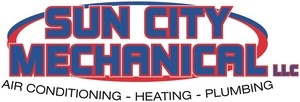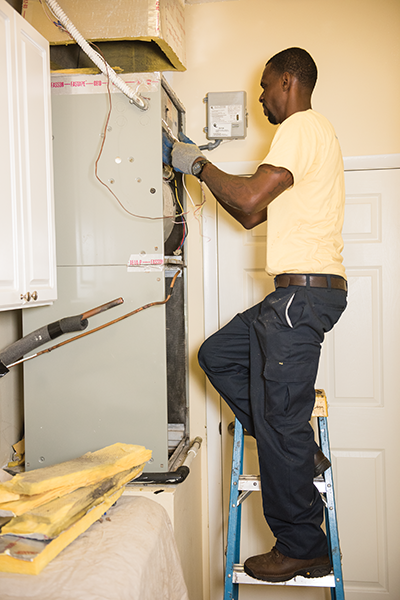Depending on where you live, wintertime can be rough. Homeowners want to come home to a warm, cozy, and comfortable place after a day of cold, winter weather. Heating a home can be pretty expensive; it takes up 42% of all utility bills. The heating budget skyrockets during the winter months, and the bill can average half of the energy bills usable the whole year.
Therefore, it is crucial that before installing or replacing an old heating system, a homeowner must choose the most efficient heating system that will heat their home and save on energy utility bills.
Why Highly Efficient Heating Systems
Highly efficient heating systems cost less on operational cost than low-efficiency heating systems. They slash the home’s energy bills by 70%. These systems are a bit expensive to install, but the initial cost is paid off by the savings that come with installing the most efficient heating system.
How Do You Tell Which System Is Most Efficient?
Heating systems are rated by the Annual Fuel Utilization Efficiency (AFUE), which means that the efficiency of a heating system is measured by the energy it uses to efficiently heat up a home. When a furnace has an AFUE of 80, it means that for every $1 paid in energy utility, $0.80 goes into heating the home. On the other hand, heat pumps are rated by HSPF, representing the pump’s total heat output.
Before purchasing heating systems, homeowners must consider the location of their home (if it becomes chilly during winter or temperatures drop below 0) and the size of the house the pump will need to serve. This is because the functional capacity of the heating system determines the power of heat it will produce.
There are three efficient types of heating systems, and they include furnaces, boilers, and heat pumps. If you wish to heat your home efficiently, you will need to carefully deliberate and choose the most efficient heating system for your home.
Furnaces
Furnaces heat the air and then blow it into the house using fans. When the warm air comes into the warming spaces, it cools and is then pulled back into the furnace to be heated once more, and the cycle continues. Furnaces are very efficient, and their efficiency is dependent on how they are made. They come with a wide range of efficiency ratings. The furnace with the highest rating is also the most efficient.
The process of heating the air by the furnace is powered by either natural gas, electricity, or oil. Oil, gas, and electric furnaces are the most common heating systems in residential homes. Some of the furnaces are antique and inefficient; there are, however, new models with new, improved technologies that are very efficient.
If your furnace is outdated, you may require a professional to inspect it and determine its age and efficiency. You may also need to invest in a more modern furnace that could, in the long term, help you to save money.
The natural gas furnace is the most efficient of the three. It is also the cheapest. Combining the natural gas furnace with a few heat-saving tips drops your energy bills drastically.
Heat Pumps
Heat pumps are considered the most efficient heating systems in the market today. They work on the principle of heat transfer, where they take heat from the air outdoors and transfers that heat to the air indoors. This method of heating homes is very effective as long as temperatures stay above freezing. When temperatures dip below 0, the heat pump uses its backup heat system that uses electricity or gas to heat your home.
There are two types of heat pumps: geothermal and air source.
Geothermal Heat Pump
The most effective type of heat pump is the geothermal heat pump. This pump uses the same principle of heat transfer, but this time, the heat is transferred from below the ground. The geothermal heat pump consists of a series of pipes dug into and buried on the ground below or are submerged in water.
The principle behind the geothermal heat pump is that temperatures below the ground and in water bodies remain constant all year long. The temperatures average between 45-60 degrees. The loop is then filled with water or a refrigerant that picks up heat from the underground or the water bodies and transfers it into the house, warming up the critical areas.
Geothermal heat pumps come with a load of advantages. They cut the energy bills by 70%, so they’re very efficient. They’re environmentally friendly and safe to use. Their operational cost is minimal.
Disadvantages would be the initial installation cost, but that is paid back by the efficiency and the significant savings that will eventually add up over time. You’ll also have to contend with trenches dug in your backyard during installation and pipe placement.
Air Source Heat Pumps
The air source heat pump uses the principle of heat exchange. When heating, the pump uses a refrigerant that taps heat from the outside and brings it into the indoor living space, and during cooling, the pump takes in air from the inside through the evaporator coil and takes it outside.
The refrigerant is a very crucial component of the heat pump. It is a liquid that circulates between the indoor and the outdoor units, taking in heat and releasing it on the other end. The refrigerant, for example, changes its form to a gas from a liquid during heating. The liquid is heated by the heat outside and becomes a gas. It’s then transported to the indoor unit, where it transfers the heat and is turned back to liquid by the cool air found inside the house, and the cycle continues.
Boilers
Boilers are an efficient heating system; they use fuel to heat water, turning it into steam. The hot water then travels through pipes and radiators. They are less common in residential homes, mainly because they are challenging to install.
The most efficient type of boiler is the condensing boiler. The condensing boiler is more efficient than the regular boiler because it taps on heat exchange. The boiler taps/recovers heat from gasses before getting exhausted and lost through ventilation and exhaust systems.
Make Sun City Mechanical Your Choice
If you plan to replace or revamp your heating system, you must consider the most efficient version of your existing heating system.
You can also contact us at Sun City Mechanical for the best guidance and advice on the best heating system that would be efficient for your home. Our skilled technicians will walk you through all your options and assist you in choosing the best and most efficient heating system.
Besides efficient heating services, Sun City Mechanicals also offers a range of other services, including air conditioning and quality plumbing. We provide all emergency HVAC services, and our technicians are on call 24 hours every seven days a week.
Sun City Mechanicals is your go-to company for the most reliable HVAC services, heating, cooling, and plumbing in the West Valley area. For more information on our services and discounts, visit our website.

